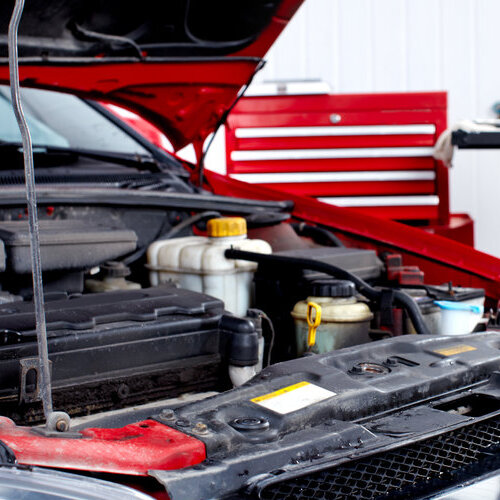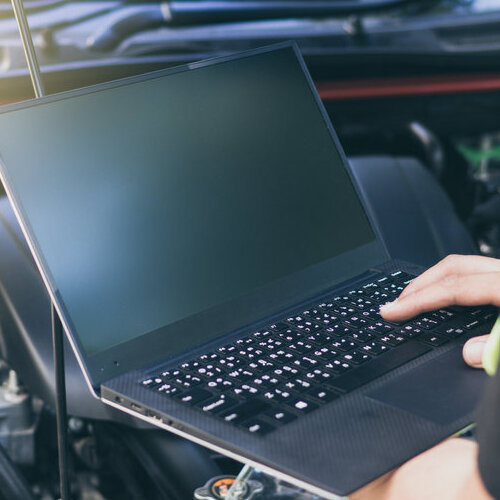
Keeping Your Car in Shape
To get the best gas mileage possible and the most power from your car, tune-ups are a necessity. Every manufacturer, make, and model of car should have a regular car tune-up. The behind-the-scenes advantages that aren’t visible to a driver have a lot of value. A car tune-up should be considered an investment in preventative measures for your car just like your annual physical is for your health.
What is a car tune-up?
There is a lot that happens during a seemingly simple car tune-up. It makes sure important components are functioning correctly and thoroughly so that your engine is running at optimum capability.
What services are included in a tune-up?
The basic car tune-up procedures will vary from car to car based on the make and model. Each garage has a different process in performing car tune-ups, but the basics are the same at the end of the day. Those basics include:
- Checking that all parts are in place and functioning
- Cleaning, repairing, and replacing parts as needed
- Inspecting belts, distributor cap, filters, fluids, hoses, rotors, and spark plugs
- Performing a visual inspection or applying a simple test to those items
Some mechanic shops will include in their car tune-up additional services like:
- Analyzing exhaust emissions
- Adjusting ignition timing
- Adjusting idle speed control
- Thorough maintenance and inspection
The filters and spark plugs are usually a part of any car tune-up regardless of who performs the task. Each of these are essential for keeping a car engine clean and running properly, which also helps the emissions and minimizes pollution.
The air filter, fuel filter, and oil filter catch contamination and keep parts of the car engine from becoming clogged with impurities like air, dust, and unclean fluids. When these items aren’t addressed with routine car tune-ups, the oil pressure gets high, the fuel pump could fail, and other issues become bigger and more expensive problems.
The spark plugs handle the “combustion” functions of the engine, and because they are made of metal to create that spark, they tend to wear out. They are under high pressure and high engine temperature the entire time your car engine is running.
Does a tune-up make your car run better?
Absolutely – a car tune-up will help your car give you the optimum experience in power while improving its gas mileage and extending the lifespan of the engine. If you’re asking yourself, “how do I tell my car needs a tune-up?” the following are basic guidelines and rules-of-thumb to follow:
The first guideline in determining when to get a car tune-up is the mileage on your car. With tens to hundreds of thousands of miles collected on a car, there are parts that begin to wear. A car tune-up will allow a professional mechanic to check those crucial parts and replaced them if needed. The owner’s manual that comes with each vehicle will have a detailed schedule for maintenance, including a car tune-up.
Among that maintenance schedule and something usually included in a car tune-up is the oil change. This should happen based on the mileage or around every three to six months. The computer on newer cars will advise you via an indicator on the dashboard.
If your car hasn’t had a tune-up in a while and you’re having any of the following issues, it is time to schedule one now:
- Soft or spongy brakes
- Electrical malfunctioning
- Engine running warmer than normal
- Abnormal sounds or vibrations
When abnormal issues are left unaddressed, it can lead to potentially expensive problems later, including needing a new engine or transmission.
How often should you tune up your car?
As we stated above, the mileage on a car is the key indicator of when a car tune-up is needed. However, if you don’t put a lot of mileage on your car, getting a car tune-up every three to six months is a basic rule of thumb.
How long can a car go without a tune-up?
Newer cars are built better today, and some can go up to 100,000 miles before needing a car tune-up, but the average is around 25,000 miles. An older car that doesn’t have an electronic ignition like newer cars should have a car tune-up between 10,000 and 12,000 miles, or on an annual schedule for those that don’t put a lot of mileage on their car.
How long does a tune-up take?
There are varying factors that can determine how long the car tune-up process takes. The average is between two and four hours. For a car tune-up on a car that is equipped with computers, the tune-up is typically quicker. An older car that has more mechanical parts that need adjustment can take longer.
Can you tune up your own car?
Yes, there are basics a car owner can do for their own car tune-up, like changing the oil and spark plugs, or checking and adding fluid as needed. However, a professional car tune-up by a mechanic will be more comprehensive and come with a guarantee that your car engine is at full capacity.

At The End of The Road
So is it worth getting a car tune-up? Definitely, especially with an older car – tune-ups keep a car running correctly and smoothly. This improves the performance of the engine overall as well, which in turn helps the overall gas mileage. All of this equates to protecting and extending the life of your car’s engine.
